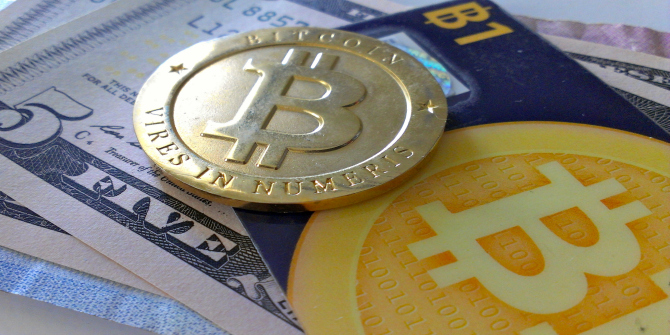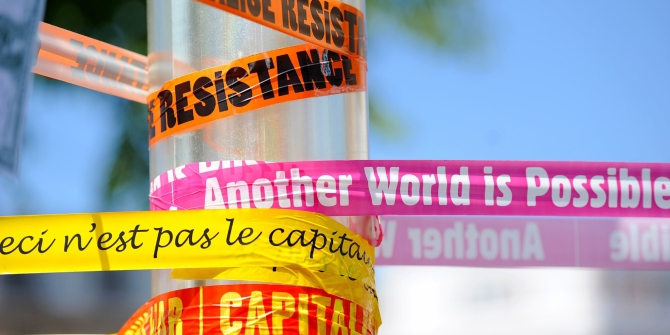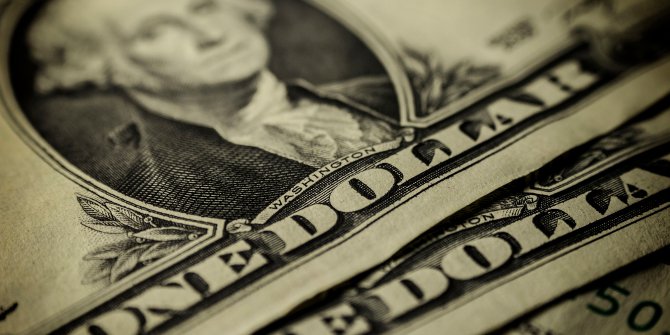
 Banking culture is as honest as other professional cultures, and varies across institutions and jurisdictions, write Zoe Rahwan and Barbara Fasolo.
Banking culture is as honest as other professional cultures, and varies across institutions and jurisdictions, write Zoe Rahwan and Barbara Fasolo.
“Honesty is the first chapter in the book of wisdom.” That’s what Thomas Jefferson, Founding Father and third president of the United States, once said. If that’s true, then you might think that bankers are stuck on the first page, such is the public perception of them.
Following the 2008 global financial crisis, the reputation of bankers took a nosedive. Public scandals and negative press coverage portrayed bankers as greedy and dishonest. This was compounded by the findings of a Swiss study published in Nature in 2014, entitled “Business culture and dishonesty in the banking industry”. By using an experimental task, the authors of this study explored the culture of the banking industry to see if it made bankers more likely to act dishonestly to maximise profits compared to professionals from other industries. Their findings suggested bankers were more dishonest than other professions, when they were asked to think about their profession – which the researchers put down to the culture of the banking industry. These findings garnered plenty of press attention and further painted the banking sector in a negative light.
We assembled a team of researchers from the Max Planck Institute for Human Development, the London School of Economics and Political Science and the Massachusetts Institute of Technology to see whether the study’s findings were the same across other countries and contexts.

Whilst the 2014 study surveyed 208 bankers in two studies and 133 non-banking professionals, and was only conducted in one country, we ran the same experiment with 1,282 participants in five different samples from the Asia-Pacific, the Middle East and Europe. Among our participants were 768 bankers across two jurisdictions, plus professionals from other sectors.
How do you study a lie?
The experiment used in the original study and by us looked at whether participants would lie to increase their earnings. Each sample was split into two groups. Participants in one group were asked questions about their profession before the experiment began; those in the other group were asked about their leisure activities. Participants then tossed a coin several times without anyone observing them and entered their results online. In each round, they were informed whether ‘heads’ or ‘tails’ would generate a reward. This gave participants the opportunity to increase their reward by lying. Although lying was not assessed at the individual level, it could be detected at the group level. This is because if nobody lies, the overall ratio of winning to losing outcomes should be approximately fifty-fifty. If a group claimed to have tossed far more winning outcomes, the researchers could infer lying in that group.
Bankers aren’t that bad!
Our findings are not in line with the 2014 study.
The results showed that there were no significant differences in the bankers’ behaviour, depending on whether they were primed to think about their work or leisure activities. This suggests that the 2014 findings cannot be generalised to all banking cultures. What’s more, we found that banker dishonesty was unaffected by whether a reward could be won for themselves or for charity.
And people don’t expect them to be…
Like the original study, we also explored the general population’s expectations of banker honesty. The 2014 experiments showed that people expected bankers to be more dishonest than other professionals – for example, medical doctors. But this wasn’t seen in our new study, which supports the idea that banker culture differs from country to country.
The problem with sample selection
Our findings could be due to a number of reasons. One possible explanation is that just like the general population’s relative expectations of banker behaviour vary across jurisdictions, so the banking culture in the original jurisdiction may not be found consistently across other countries.
A second reason might be that we sampled more honest banks. In wake of the 2014 study’s highly publicised findings, only banks that were confident in the soundness of their culture might have agreed to take part in the new study. Of the 27 financial institutions approached — including 14 investment banks — only two commercial banks were willing to participate. This selection bias made rigorous testing of the original findings challenging but is an intrinsic by-product of any highly publicised field study – which can only be overcome by running more experiments ahead of the publication of highly sensational findings.
Bankers’ culture is heterogenous
Over a decade on from the 2008 global financial crisis, there is an ongoing concern regarding the honesty of bankers and the banking sector. We hope our work provides a helpful, empirically based reminder that there can be significant variation in banking culture across institutions and jurisdictions, with banker culture similar to other professional cultures, not necessarily undermining honesty.
- This blog post appeared originally on LSE’s Department of Management blog. and LSE Business Review and is based on the authors’s paper Heterogeneity in banker culture and its influence on dishonesty, with Erez Yoeli, in Nature, 2019.
- Note: This article gives the views of the author, and not the position of USAPP – American Politics and Policy, nor the London School of Economics.
- Featured image via Free-Photos, under a Pixabay licence
Please read our comments policy before commenting
Note: The post gives the views of its authors, not the position USAPP– American Politics and Policy, nor of the London School of Economics.
Shortened URL for this post: http://bit.ly/2Sa3K4T
About the authors
 Zoe Rahwan – Max Planck Institute for Human Development
Zoe Rahwan – Max Planck Institute for Human Development
Zoe Rahwan is a research scientist in the Center for Adaptive Rationality at the Max Planck Institute for Human Development.
 Barbara Fasolo – LSE Department of Management
Barbara Fasolo – LSE Department of Management
Barbara Fasolo is an associate professor of behavioural science at LSE’s Department of Management. She is an expert on choice processes and choice architecture. She is the head of the Behavioural Research Lab and director of the Executive Master in Behavioural Science.






